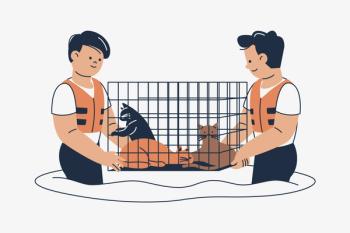
Blog: Survey of young pet owners calls shelter marketing into question
'Problem pets' stigma is driving down adoptions, experts fear.
A recent survey, described
The study was conducted by
Many groups may want to use the data to make Gen X and Millennials feel guilty for considering sources of dogs other than shelters. Guilt is a powerful marketing tool—and the force underlying much of what we see on television fundraising tied to canine adoptions.
But the survey could serve as a wake-up call to national animal rights and welfare organizations to rethink media advertising that paints a picture of damaged dogs in shelters, however genuine the motive behind the ads might be.
A growing number of shelter leaders are concerned that the public has come to think of shelter dogs as problem dogs. If potential pet owners in the 18- to 34-year-old demographic believe that shelter dogs are "damaged goods," then it should be no surprise when they look to other sources for family pets. Veterinarians and others familiar with local shelters know that this image is rarely the case, notwithstanding the pictures in heart-tugging TV spots.
When potential dog owners, young or old, understand that it’s easy to find terrific companion animals (dogs and cats) in shelters, then these survey results will change. The Best Friends study may be the spark to cause long-running TV ads to try a different tack, leading the next generation of pet owners to give shelters a chance. Not out of guilt, but in the hope that they will find great pets who deserve great homes.
Mark Cushing, JD, is founding partner of the
The Veterinary Policy Notes blog on dvm360.com helps veterinarians and other animal health professionals keep abreast of the growing number of issues, political challenges and regulatory initiatives affecting the veterinary profession, animal health industry and animal welfare movement.
Newsletter
From exam room tips to practice management insights, get trusted veterinary news delivered straight to your inbox—subscribe to dvm360.




